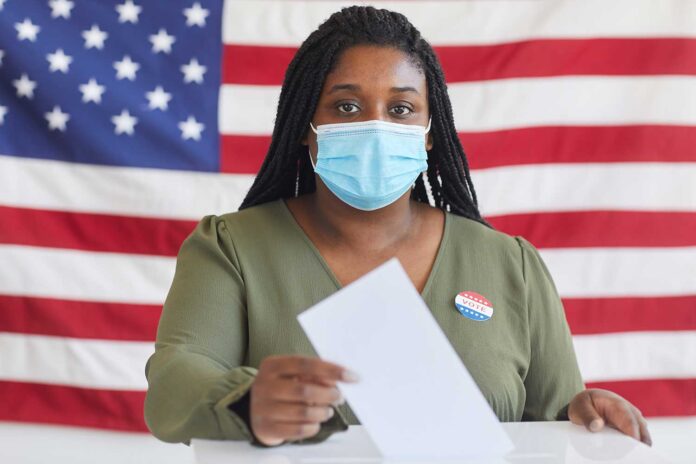With the plethora of sports organizations, corporations and other groups boycotting the state of Georgia, it’s clear that Republican-led voter suppression has not only become an issue of national concern, but has caught the attention and inspiration of the general public. Yet it’s also important to remember that voter suppression — just like climate change, or infrastructure, or racial justice — is an LGBTQ issue.
Voter suppression is something that the LGBTQ community needs to fight against along with our myriad other battles. It doesn’t matter if you don’t live in a state with a Republican-led legislature or executive branch. If you haven’t seen it already, sooner or later you will have to deal with the ramifications of voter suppression. And it’s not just about the White House or Congress. Voter suppression laws impact all elections, from the large ones to the small ones. And the small ones can matter just as much — if not more so — than the large ones.
Small offices like committee person, ward leader, or even county executive help shape the quality of life for LGBTQ people. Even roles in neighborhood associations are important. In the 1970s, the LGBTQ community in Philadelphia worked to get our allies elected to various civic associations, which in turn influenced things such as building permits, which in turn helped ease the discrimination facing LGBTQ businesses and made it easier for the businesses to serve their clientele.
We have built our fight for equality on the back of free and fair elections. All of the pro-LGBTQ laws we have locally, statewide, and nationally were passed because we were able to elect LGBTQ allies and LGBTQ people to political office. We were allowed to cast our votes for the candidates we believed in. If we hadn’t been allowed to vote, or if voting had been so difficult that many could not participate, it’s likely we would not have nondiscrimination laws, marriage equality, or hate crime laws. Actually, it’s not just likely, it’s a certainty.
Now, laws in Georgia and proposed laws all across the country are threatening to make voting more difficult, especially in communities that already had a tough time casting ballots. These laws are anathema to what social change is about. The LGBTQ community is spread out across all demographics and all regions. You might not know an LGBTQ person who has to wait in line for 5 hours to vote, but they exist. And the fact that many not only have to wait for hours, but now cannot receive food or water, among other discriminatory stipulations, is a travesty.
So, while the calls for the Equality Act continue and as we wait for the Supreme Court’s latest ruling on our rights, don’t forget that there are other battles that need our attention, and chief among them should be voting rights. Voting rights impact the Equality Act. Voting rights impact the Supreme Court. It all begins with the ballot.
